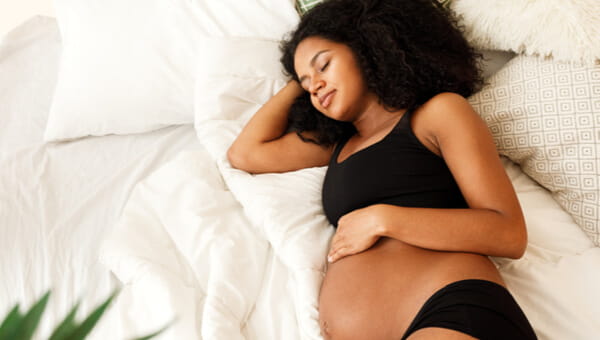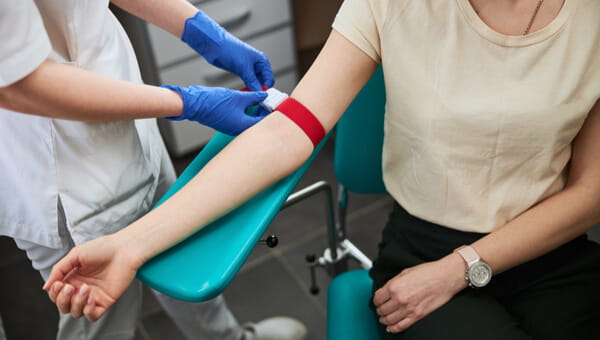Sleep Positions
Sleep on your side
Doctors recommend sleeping on your side because, well, that’s really the only option at this point. Either side is fine, but when you sleep on your left side, your baby will receive more blood and nutrients flowing from your placenta. Side sleeping will also improve your kidney function, helping to eliminate waste products from your own body and your baby’s—and maybe reducing swelling in your feet and ankles.But why can’t I sleep on my back?
Past the first trimester, it becomes dangerous for a pregnant woman to sleep on her back. That’s because the entire weight of your uterus (including your baby) will rest on your back, your digestive system and the big vein that carries blood from your lower body to your heart. The reduced circulation can also mean that your baby doesn’t get enough oxygen and nutrients.But don’t stress too much if you roll over onto your back during the night—just reposition yourself when you wake up. Placing a pillow behind your back can help “remind” your body not to roll over while you’re asleep.
Prop with pillows
Buy a few extra pillows and get creative with them. If you find that heartburn interrupts your sleep, you can prop your upper body a little higher. If your back hurts, place a pillow between your knees while lying on your side. A pillow under your belly will also make you more comfortable on your side. Try lots of combinations, and maybe even a full body pillow, to see what works for you.What if I still can’t get comfortable?
If you just can’t sleep on your side, it’s okay to curl up in a recliner and sleep (somewhat) on your back—just don’t lie down flat. You may also find that one sleeping position works for a night or two and then you need to change it up.
Listen to our selected podcast to learn more about safe sleeping.

What You Need to Know About Infant Safe Sleeping and Co-Sleeping
Since the American Academy of Pediatrics (AAP) recommended all babies should be placed on their backs to sleep in 1992, deaths from Sudden Infant Death Syndrome have declined dramatically. But sleep-related deaths from other causes, including suffocation, entrapment and asphyxia, have increased.Sleep needs for babies vary depending on their age. Even though you may think it will be easier for feedings or to get up in the middle of the night if your baby is co-sleeping with you, the AAP strongly believes in sharing your room and not your bed. Putting your baby in bed with you may raise the risk of strangulation, suffocation, entrapment, and SIDS. Monica Kharbanda, MD, discusses the potential dangers of co-sleeping, why you should put your baby to sleep on their backs, and the latest recommendations from the American Academy of Pediatrics.Learn more about BayCare’s children’s health services.This podcast is for informational purposes only, and is not intended to be a substitute for professional medical advice, diagnosis, or treatment. This podcast does not create a physician-patient relationship. You should always consult your physician or other healthcare professional with any questions you may have regarding a medical condition. If you think you may have a medical emergency, call your physician or 911 immediately.




